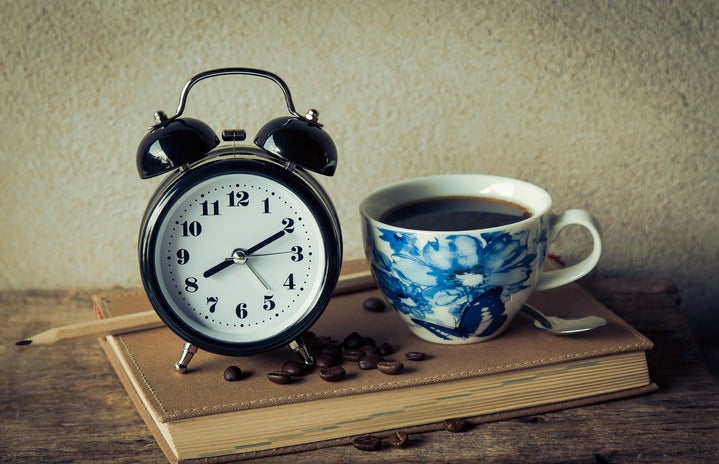Content warning: this article contains discussion of emotional abuse.
This past June, I ended up where I’d really secretly wanted to be for a couple of years: driving around with my best guy friend, admitting that we maybe-might-possibly-kind-of have feelings for each other. We started to hang out every chance we could, and absolutely nobody was surprised. Our girl friends squealed when I told them about what happened; our guy friends smiled and said they could see it coming. He and my brother played video games together in my basement, my family’s puppy would go berserk every time he walked in the door, my mom gushed to his mom about his great manners. Everyone agreed that he could be really, really good for me.
Everyone, I suppose, except my then-twelve-year-old sister. Driving home one night, she let slip that she didn’t like it at all. After we pulled into the driveway, she went straight up to her room and refused to talk to me for a bit. Eventually, I was allowed in, and she explained that she never wanted me to have another boyfriend ever again. She told me that was because of my previous boyfriend.
“I’m mad at him,” she whispered in a voice I can still hear clearly, right before she started to cry. It broke my heart harder than I think he ever could have.
When you hear about abusive relationships in those required seminars in school or just in normal conversations, they seem like the easiest thing ever to avoid. Don’t date the boy who gets angry at everything, don’t date the boy with violent tendencies, don’t date the boy who isolates himself from other people or says mean things to his mom.
But there are warning signs the seminars can’t really know to warn you about. Like how sometimes your abuser buys you your first chai latte and you subsequently realize you love chai lattes. Or the times your abuser takes you to photography museums or gets adorably flustered the first time he meets your dad. And there was that time really late at night when you and your abuser asked for kids’ menus and crayons at the only restaurant that was still open at that hour and raced each other to see who could finish the word search first. The way that on his worst days all you’ll really want to do is hide inside the giant sweatshirt he gave you and curl up in bed while you wait for him to come around again, to go back to being himself, to remember that he loves you. He’s only upset because he loves you, you remind yourself every time. He always comes around again, you remind yourself every time.
Regardless, I felt myself retreating away from anything that wasn’t him. I closed myself off from my friends and my family. I stopped paying attention in classes, gave up on doing the things I really loved doing, and staying positive became harder and harder. It took me a long time, and a big step back, to decide I needed to get out of the relationship. And even then, after I had decided to do it, I wasn’t able to follow through with it until after we had graduated, while he was gone for the rest of the summer and I didn’t have to worry about direct effects of how he may react to it.
I have to say this before I keep going. Every time I use the word “abusive” to describe the relationship I had it makes me want to curl up in a ball and never mention anything about him to anyone ever again. It doesn’t matter that it’s a word my friends, family, and therapist have all used. Saying it while I’m referring to myself makes my skin crawl. It always feels like I’m trying to play myself up as a victim, or play him up as an awful person, or invoke someone else’s empathy or their pity, and that’s never been what I’ve wanted. And I know there are some people who might see this article after it’s published, and I know those people are going to be able to figure out what boy this article is about, and their reaction scares me a lot. A girl who graduated my high school a few years ago spoke out once about an abusive relationship she had been in, and in place of support oftentimes I heard people talking about her like she was just some bitter ex who just couldn’t let it go. I didn’t understand how it could be so easy for them to invalidate how much pain she must have been in, and how much it must have taken her to work up feeling comfortable about speaking about what she went through. Speaking out about relationships like hers isn’t about getting revenge on an ex, or painting them in negative lights so that people will take “your” side. It’s about overcoming something you really weren’t sure if you were going to be able to get out of and being able to face the world again and say that you’re healing. It’s about being able to reassure yourself that you’re still worth loving. It’s about remembering to stay brave, and it’s about becoming strong again.
In my first few drafts of this article, I’d written out a list of a bunch of the terrible things that happened while I was in my relationship. I felt like for people to really believe that I wasn’t just begging for sympathy or attention, I’d have to prove to you all just how badly I was treated with concrete evidence. I listed names he’d called me, fights we’d had, times I’d cried so hard that it became hard to breathe. I tried to give examples of the person I became when I was with him, to make it obvious that I really was, in fact, in a dangerously unhealthy relationship. I was scared otherwise that everybody would think I was just trying to victimize myself. (In a lot of ways, I’m still scared of coming across like that.)
I think part of it is that it’s hard for people to take a claim like that seriously without some kind of blatantly evident emotional damage. Without a scrape or a bruise after physical abuse or some kind of very visible emotional trauma after any kind of abuse, like jumping especially quickly at loud noises or breaking down in tears every time someone mentions your abuser. It’s not as easy for someone to believe that you’ve been in an abusive relationship in the past when you tear up from laughter more often than sadness, or when you can walk up to a group of strangers and start talking to them like it’s nothing.
Honestly, I almost believed that too. I thought I’d be okay as soon as I got out of the relationship that seemed like it was the root of my problems. And it did help, a lot. My dad and sister went out to buy every different kind of ginger ale that they could find, since it’s my favorite, and I had my day of curling up on the couch and grieving the lost relationship, and then I was reminded how many other people in my life loved me, and it was really nice to hear so many of them say that they were proud of me for deciding to do what was best for me. I started to rebuild the bridges I burned down and focus again on finding what I’d lost while I was with him, especially myself.
But I didn’t really anticipate lasting damage. I didn’t really anticipate wanting to cry every time I thought about the things he had said to me, even after I had told myself over and over that I was nothing like the person he treated me as. I didn’t really anticipate how often I wanted to call him and tell him I was sorry for everything I ever did that made him upset. I didn’t anticipate how often I would blame myself for the way he acted. If only I had listened to what he needed more, if only I had worked harder to make sure he was happy. I’ve felt selfish so many days for deciding that my own happiness was more important than keeping him comfortable. It’s harder than I expected to remember that you can’t possibly be truly loved by somebody who made you feel like you needed to constantly be apologizing for who you are. It’s hard not to want to go back to what was easy. In my memories, I can’t really recall him smiling or laughing around me, but on my phone I still have pictures and videos of those moments and they remind me of what I always assumed we could have been, and that makes it harder to let go of him, no matter how bad it got.
In my next relationship, I found myself apologizing for absolutely everything and consistently being nervous that he was mad at me. This was with somebody I had known and cared about for years, someone I had laughed with and cried with more times than I’d be able to count, someone who had seen me at my best and my worst and still felt like family to me. But as soon as we decided to label ourselves as something more than friends, I was constantly scared of upsetting him. I was a lot more fragile than I ever could have expected, even with someone who I should have felt more secure with than anyone else. I had been told over and over that I was to blame, and in return, I started to blame myself and started to believe that all of my relationships were going to be exactly the same because of who I was. I thought I’d somehow caused my last boyfriend to be as angry and untrusting as he was with me, and was nervous that I would turn my best friend into the same kind of person. I caught myself off guard with how on guard I was all the time. It took a lot to be able to talk about it with him, even while he had been with me throughout the entire relationship and had seen how it had impacted me.
There are songs I still can’t listen to. There are forest preserves I still can’t walk through, and memories in general that hit a little too hard. It comes out of nowhere sometimes, thinking about the relationship and feeling that all-too-familiar tightening in the back of your throat, the heat behind your cheeks. It wasn’t immediate healing, the way I sort of hoped it would be. I didn’t get to go back to who I was a year ago. I think I’ll be able to come close, soon even, I hope, but for now, I’m still trying to forgive myself for the actions I regret. For now, I’m getting closer to getting myself back on my own side. I laugh more often than I cry, I dance at concerts, I tell people I love that I love them, and I take pictures of absolutely everything. That’s more than I’ve been able to say for myself in the past. So I’m hopeful for the future.
Image credits: Annmarie Morrison

